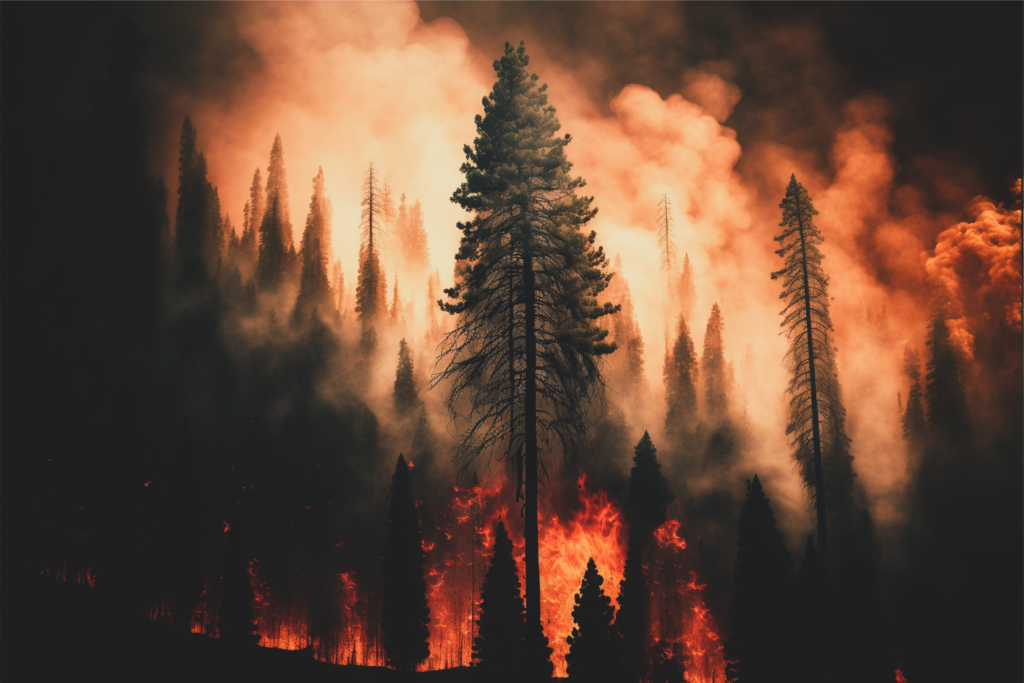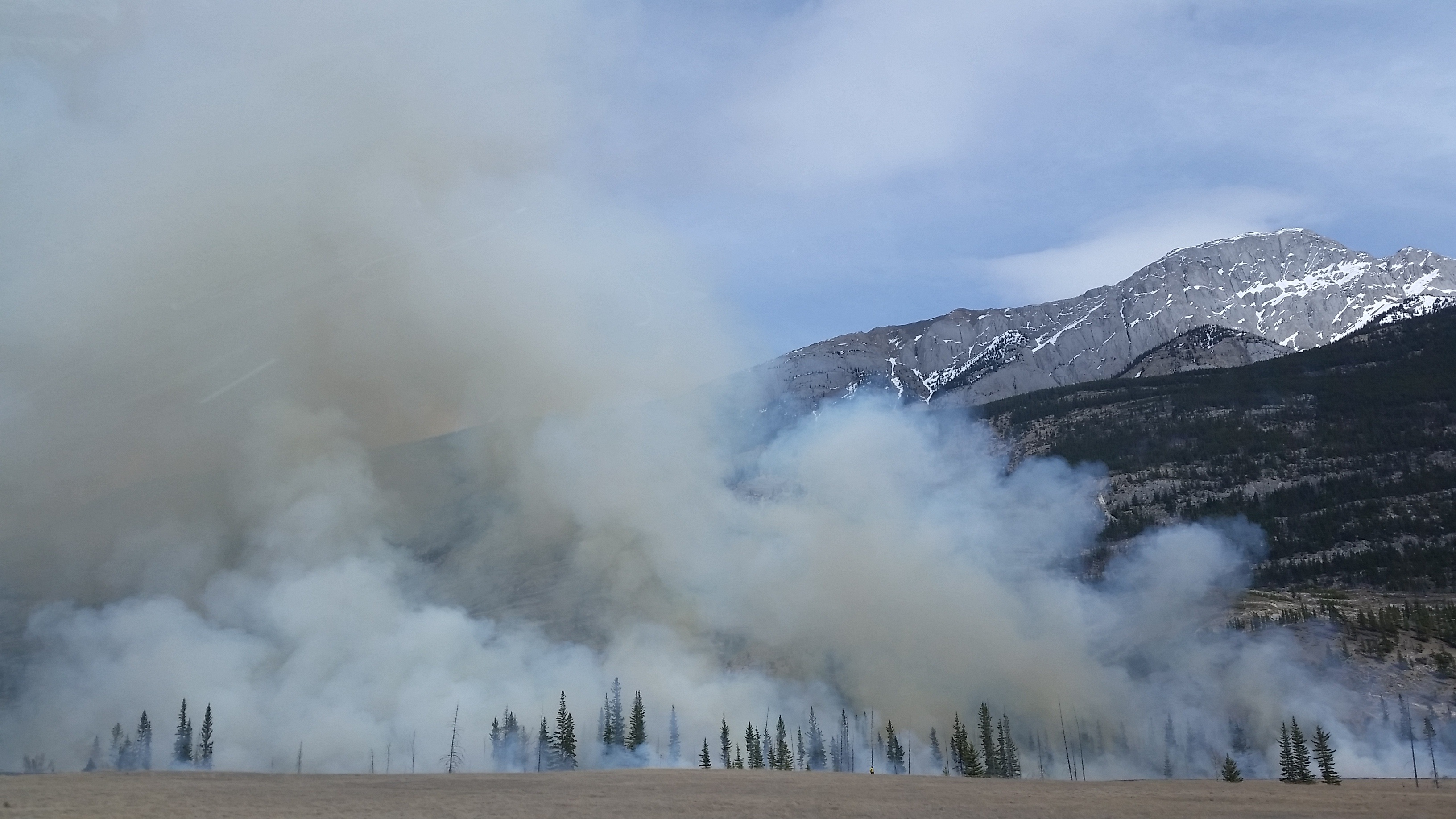Wildfires in Canada have created startling concerns throughout the northern states and east coast. The air quality was been impacted heavily, resulting in temporary shutdowns of restaurants and social events. In recent years, the world has witnessed an alarming increase in the occurrence and intensity of wildfires. These catastrophic events not only pose immediate risks to life and property but also have far-reaching consequences on our environment and public health. One of the most significant impacts of wildfires is the degradation of air quality, which can have severe implications for human well-being. Here, we will explore the connection between wildfires and poor air quality, understanding the dangers they present and the measures we can take to protect ourselves.

The Link between Wildfires and Poor Air Quality
Wildfires release an array of pollutants and hazardous particles into the atmosphere, resulting in the deterioration of air quality over large areas. The primary contributors to poor air quality during wildfires include:
- Particulate Matter (PM): Burning vegetation and organic materials release fine particles known as PM2.5 and PM10, which are tiny enough to be inhaled deeply into the lungs. These particles can cause respiratory problems, exacerbate existing conditions such as asthma, and even enter the bloodstream, leading to cardiovascular issues.
- Volatile Organic Compounds (VOCs): Wildfires emit a range of VOCs, including benzene, formaldehyde, and acrolein. These toxic compounds can irritate the respiratory system, cause headaches, and have long-term health effects with prolonged exposure.
- Carbon Monoxide (CO): Incomplete combustion during wildfires produces high levels of carbon monoxide, a colorless and odorless gas that interferes with the delivery of oxygen in the body. Breathing in high concentrations of CO can lead to dizziness, nausea, and in extreme cases, even death.
- Ozone (O3): Wildfires can contribute to the formation of ground-level ozone when nitrogen oxides and volatile organic compounds react with sunlight. Ozone can cause respiratory distress, particularly for individuals with pre-existing respiratory conditions.
Health Implications of Poor Air Quality
Exposure to poor air quality resulting from wildfires has both short-term and long-term health implications. The immediate effects can include:
- Respiratory Issues: Inhalation of smoke and particulate matter can cause coughing, wheezing, shortness of breath, and throat irritation. Individuals with respiratory conditions such as asthma or chronic obstructive pulmonary disease (COPD) are particularly vulnerable.
- Eye and Skin Irritation: Wildfire smoke can cause redness, itching, and irritation of the eyes. It may also lead to skin reactions such as rashes and dryness.
- Cardiovascular Problems: Fine particles from wildfires can enter the bloodstream and trigger or exacerbate heart conditions, leading to increased risk of heart attacks, strokes, and other cardiovascular complications.
Long-term exposure to poor air quality can have severe consequences, including chronic respiratory diseases, decreased lung function, and an increased risk of cancer.
Protecting Yourself during Wildfires and Poor Air Quality
While wildfires and their resulting air pollution are formidable challenges, there are steps we can take to protect ourselves and mitigate the risks:
- Stay Informed: Pay attention to air quality alerts and wildfire updates provided by local authorities. Stay informed about evacuation orders or other safety measures in your area.
- Limit Exposure: If the air quality is poor, especially during active wildfires, minimize your time spent outdoors, especially engaging in strenuous activities. Create a clean and safe indoor environment by keeping windows and doors closed and using air purifiers with HEPA filters.
- Use Protective Gear: When venturing outside, wear N95 or P100 respirator masks to reduce exposure to harmful particles. These masks are designed to filter out fine particles effectively.
- Seek Medical Advice: If you experience symptoms such as difficulty breathing, persistent cough, or chest pain during a wildfire event, seek medical attention promptly. Follow the guidance of healthcare professionals for appropriate treatment and management.
- Support Environmental Conservation: Contributing to efforts that promote sustainable land management, responsible forestry practices, and reducing greenhouse gas emissions can help mitigate the intensity and frequency of wildfires.
Wildfires pose a significant threat to our health, not only through their immediate destruction but also due to the poor air quality they generate. The combination of smoke, particulate matter, and toxic gases can have detrimental effects on our respiratory system, cardiovascular health, and overall well-being. By staying informed, taking necessary precautions, and advocating for environmental conservation, we can safeguard ourselves and future generations from the devastating impact of wildfires and poor air quality. Remember, our collective actions hold the key to building a healthier and more resilient future.
If you are interested in scheduling an inspection to test for VOCs related to contaminants from a wildfire, contact us today!

